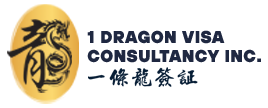Launching a business in the Philippines can be both thrilling and daunting.
Understanding the local environment is essential for foreigners interested in penetrating the dynamic and diverse Philippines market to launch a thriving business.
While the agriculture sector still dominates the Philippines economy, substantial opportunities abound due to the growing urbanization, emergence of an expanding middle-income class, and a vast young population actively driving significant consumer demand.
The advantages of starting a business in the Philippines for expats are the availaibility of skilled workforce and the high literacy rate of 97.95% next to Singapore.
Initiating a venture in this achipelago is not just a business move but also an artistic stroke on the canvas of opportunity within the Asia-Pacific region.
With its lively blend of cultural richness and economic vitality, the Philippines emerges as an unexplored frontier for pioneering business ideas.
Let us explore the key considerations for aspiring foreigners looking to start a business in the Philippines in 2024.
Philippines Legal System
The Legal System and the Courts
- Blend of Laws: Philippines follows a mix of civil and common law.
- Civil laws are evident in cases related to family, property, succession, contracts, and criminal laws.
- Criminal law operates in constitutional, corporation, taxation, banking, insurance, remedial, and labor.
- Judicial Hierarchy: The judicial system is a hierarchy of municipal and regional courts, the court of appeals, and the supreme court that oversees all lower-level courts and personnel.
Conditions on Approval of Foreign Investment
- General Principle: Except in sectors allocated for Filipino citizens, foreigners can conduct business in the Philippines as provided in the Constitution and exisiting legislation.
- Equity Restriction & Legal Foundation: Foreigners’ ownership of certain enterprises and activities is restricted as documented in the Foreign Investment Negative List (FINL) issued by the President of the Philippines in accordance to the Foreign Investments Act of 1991 (FIA), Republic Act No 7042.
- Maximum Capital: The maximum amount of ownership a foreigner can have in a corporation is determined on the type of activity in which the entity will engage.
- Important Reminder: Compliance with these regulations is crucial for foreign entities operating in the Philippines.
Business Structure in the Philippines: Types & Information
Choosing an appropriate business structure is one of the most important decisions foreign investors must make when starting a business in the Philippines.
This choice has a big impact on things like ownership, taxation, and jurisdictional requirements.
| BUSINESS STRUCTURE | DEFINITION | OWNERSHIP | CONTROL |
| 1. Sole Proprietorship | Formed by a single individual | The owner possesses both the assets and liabilites of the business. | Full authoirty and control rest with the owner. |
| 2. Partnership | Formed through the collaboration of two or more individuals. | Partners bear the unlimited liability in general partnerships and limited liability in limited partnerships. | Shared control among partners. |
| 3. Corporation | A distinct business entity separate from its owners. | Requires a minimum of five and a maximum of fifteen shareholders. | Decision-making by a board of directors. |
Business Entities for Foreign Companies/Investors:
| Foreign Business Entities | Definition | Taxation | Registration |
| Branch Office | An office performing activities on behalf of the head office in the Philippines. | Subject to income-tax, local tax, and tax withholding | Must be registered with the Securities and Exchange Commision (SEC). |
| Representative Office | Mandatory registration with the SEC. Serves as a link beyween the country and the home office. | Not liable for taxes as activities are non-income generating. Primarily used for promotional service and information sharing. | Must be registered with the Securities and Exchange Commission (SEC). |
| Regional Operating Headquarters (ROHQ) | Functions as the administrative branch of the parent company. | Principally incorporated to supervise, communicate, and coordinate componenets in the Asia-Pacific Region and other markets. | Business owners must register with their ROHQ with the SEC |
Stepwise Guide to Business/Company Registration
Step 1: Name Registration
- Choose a business name, check availability, and register.
- Receive a certificate valid for five years upon approval and fee payment.
Step 2: Notarization of Documents
- Official documents, including articles of incorporation, must be notarized.
Step 3: SEC Registration
- Foreign corporations must secure a license from the Securities and Exchange Commission (SEC) to operate in the Philippines.
- SEC approval is required for the primary registration of foreign investments that trigger FIA and FINL foreign stock limits.
- New corporations with over 40% foreign equity must apply for FIA authority using SEC Form No. F-100 and declaring their percentage of foreign equity
and intention to operate either a domestic market enterprise or an export market enterprise, as defined by the FIA.
Note: Operation without SEC License
- Failure to obtain a license may result in legal consequences.
Step 4: DTI Registration
- Foreign businesses must register with the Department of Trade and Industry (DTI) for the Business Trade Name (BTR).
Step 5: Mayor’s Business Permit
- Purpose: Secure a license to operate in the city or municipality.
- Requirements: Payment of local business taxes.
Step 6: BIR Registration
- Purpose: Obtain Tax Identification Number (TIN) for the business.
- Requirements:
- Register books of accounts.
- Pay national internal revenue taxes (Income tax, VAT, Percentage Tax, Withholding Taxes, etc.).
- Issue official receipts and invoices.
Step 7: SSS, PhilHealth, and Pag-Ibig Fund Registration
- Purpose: Register the company as an employer.
- Responsibilities: Remit employees’ contributions along with the employer’s share.
NOTE: Pre-registration Requirements
- Certificates of registration with the SEC or DTI are usually required.
- Registration through these offices is a prerequisite for initiating the business registration process.
Step 8: Minimum Capital Requirements
- Vary for different corporate structures and industries.
- Domestic market enterprises with over 40% foreign ownership may have minimum capital requirements.
Note: Commitments Required
- Applicants must comply with minimum capitalization rules.
- Certain businesses have specific minimum capital requirements based on industry and type.
Step 9: Financial Ratios and Securities
- SEC verifies financial ratios like solvency, liquidity, and debt to equity.
- Applicants may need to deposit securities with a market value of at least PHP500,000.
Step 9: Application Review
- SEC reviews applications for foreign investments and checks compliance with FIA.
- Incomplete applications may be given a chance for rectification.
Step 10: Business Entities and Capitalization
- Different corporate setups (Branch Office, Representative Office, Regional Headquarters) have specific capitalization requirements.
Step 11: Additional Requirements
- Some businesses, like those in insurance or pre-need plans, have additional capitalization requirements.
Step 12: Employment Relationships
- Employment relationships are subject to Philippine labor laws.
- Foreigners intending to work in their own company need Alien Employment Permits (AEP).
Step 13: Registration Process
- Submit forms and documents to SEC for company incorporation.
- Obtain pre-approval after document review and payment proof.
- SEC provides the Taxpayer Identification Number.
Step 14: Fees Payment
- Pay bank’s name registration costs and submit payment proof online.
- Receive payment fee proof from the SEC after incorporation.
Step 15: Business Permit and Licenses
- Obtain necessary permits and licenses from the local municipality based on your business nature.
Step 16: Barangay Clearance
- Submit application, SEC certificate of incorporation, site map, office lease documents, and proof of payment to the local Barangay.
- Receive clearance for annual community tax.
Step 17: Social Security System Registration
- Submit registration form, employee list, notarized articles of incorporation, bylaws, and SEC registration for employee and employer numbers.
Step 18: Philippines Health Insurance Registration
- Submit employer and employee member forms, certificate of incorporation, articles of incorporation and bylaws, and business permit.
- Insurance company provides proof of membership for employee health coverage.
Step 19: Submission to Bureau of Internal Revenue
- Submit printed receipts, invoices, books of accounts, VAT registration certificate, SEC registration proof, and notarized sworn statement to the Bureau of Internal Revenue.
Step 20: Completion
- Ensure all required documents and payments are submitted for a successful registration process.
Compliance for Foreigners in the Philippines
Compliance Procedure
- SEC evaluates applications for compliance with the Foreign Investments Act (FIA) and FINL.
- Application processing takes approximately one to two months.
- SEC may allow rectification of deficiencies in applications.
Sanctions for Non-compliance
- Violation of foreign equity restrictions may lead to fines, penalties, and loss of benefits granted under the FIA.
- Administrative sanctions by the SEC may also apply.
Conclusion — Subsequent Measures to Launch Your Company in the Philippines
To facilitate foreign business operations in the nation, the Philippine government has made a good advancement in streamlining the company incorporation process.
Although the procedure is quite simple, it does require a significant time commitment that could be better utilized running your current business.
We recommend using the assistance of a recognized and registered incorporation service provider in the Philippines for a immaculate incorporation process.
Even though this article provides some valuable information, you may feel free to ask us specific questions about incorporating your business in the Philippines.
1D Business Solutions Inc., a division of the 1D Group of Companies, has led the way in the Philippines for more than five years in offering simple, stress-free business registration services.
We can save you time and money and ensure a seamless incorporation process thanks to our extensive experience in the Philippines.
Regardless of your experience level or level of familiarity with the business world, our committed team is here to help.
For a tailored consultation, get in touch with 1D Business Solutions.
Let us make your relocation to the Philippines both our pleasure and our duty.

